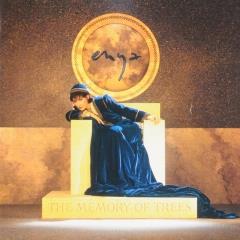
She delves these subjects with gusto on single Cure For Me, a slab of dark disco inspired by her study of gay conversion therapy. “In Greek mythology the gods were both men and women. That the female side of the spiritual has been erased. On The Gods We Can Touch she investigates the idea that our deities were created in the images of men. But I have a lot of spirituality in myself.” “Religion fascinates me because it’s been a part and a need we’ve had for as long as humanity can remember,” she says. And by her talent for combining multi-faceted lyrics with tumultuous electronica. Yet these heavy subjects are offset by Aurora’s mellifluous croon. The Gods We Can Touch is an operatic exploration of religion and the dynamic between gender and faith. However, on forthcoming third album, The Gods We Can Touch, the 25-year-old demands to be heard in her own right and not to be compared to other artists. She has also been hailed as a successor to Bjork (predictable given their shared Nordic heritage) and to Florence and the Machine and The Knife’s Karin Dreijer. There’s been a lot of painful historyĮnya is one of the pop icons to whom Aurora has been likened since breaking through with the haunting single Runaway. And we changed that and started burning witches. In Greek mythology the gods were both men and women. Enya to me is the sound of Mother Earth and motherly love and spiritually and serenity. If you’re a man who loves nail polish you’re not cool. If you’re a woman who loves football you’re cool.

“I guess the world likes to undermine what feels soft and female. She’s been medicine to me my whole life,” says Aurora speaking from her home in Bergen. And she proved to me how music can be medicine. “She taught me as a child the value of my voice. Only later did she discover the ethereal Irish artist had for many years been dismissed as naff and cheesy – regarded, essentially, as a scented candle in human form. But she knew she loved Enya with all her heart. When the singer and producer Aurora Aksnes was growing up in a small town in western Norway she didn’t know much about the world.


 0 kommentar(er)
0 kommentar(er)
